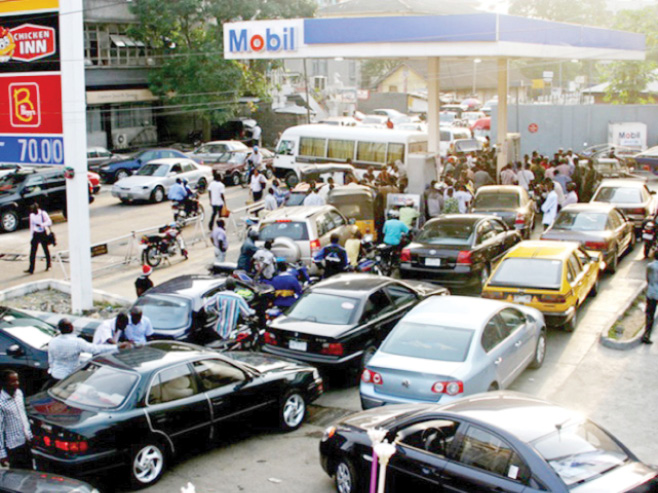Most fuel stations in Abuja are still clogged with vehicles and long queues as petrol scarcity continues to bite harder in the FCT.
Correspondents of the News Agency of Nigeria (NAN) who monitored the situation at the federal capital on Saturday report that long queues were noticeable at fuel stations as early as 5 a.m.
- FG moves to evacuate Nigerians trapped in Ukraine to Poland
- Nigeria to host 53 countries for energy summit
Fuel stations belonging to major marketers and those belonging to the state-run Nigerian National Petroleum Corporation (NNPC) had long queues stretching to the highways in some cases.
Some motorists who spoke with NAN expressed worries and anxiety over the scarcity.
Mr Ifeanyi Chukwudi, a motorist, blamed the NNPC for not explaining to Nigerians the reason behind the fuel scarcity even after promising to inject 2.1 billion litres of petrol into the system by the end of February.
“Today is February 26; the queue in Abuja is unprecedented since the coming of this administration; we have not witnessed such queues; so what is responsible? The NNPC should explain,’’ he said.
Mr Biola Akande, a taxi driver, said he got to the fuel station as early as 5 a.m., but met a long queue, adding that such development would not augur well for the country and the economy.
He urged the Federal Government to, as a matter of urgency, provide a lasting solution that would end the long queue.
On February 16, Group Managing Director of the NNPC, Mr Mele Kyari, promised that the scarcity would end by the end of February.
He made the promise before the House of Representatives Committee on NNPC (Downstream), investigating circumstances surrounding the importation of adulterated fuel into the country.
In a statement, the company also said it is working with partners and security operatives to ensure the product reaches every part of the country.
NNPC is further intensifying efforts to resolve distribution hitches being experienced in some parts of the country due to logistics issues, the statement added.
The current fuel scarcity had been blamed on the importation of adulterated petrol and the withdrawal of same after it had damaged many vehicles. (NAN)

 Join Daily Trust WhatsApp Community For Quick Access To News and Happenings Around You.
Join Daily Trust WhatsApp Community For Quick Access To News and Happenings Around You.


